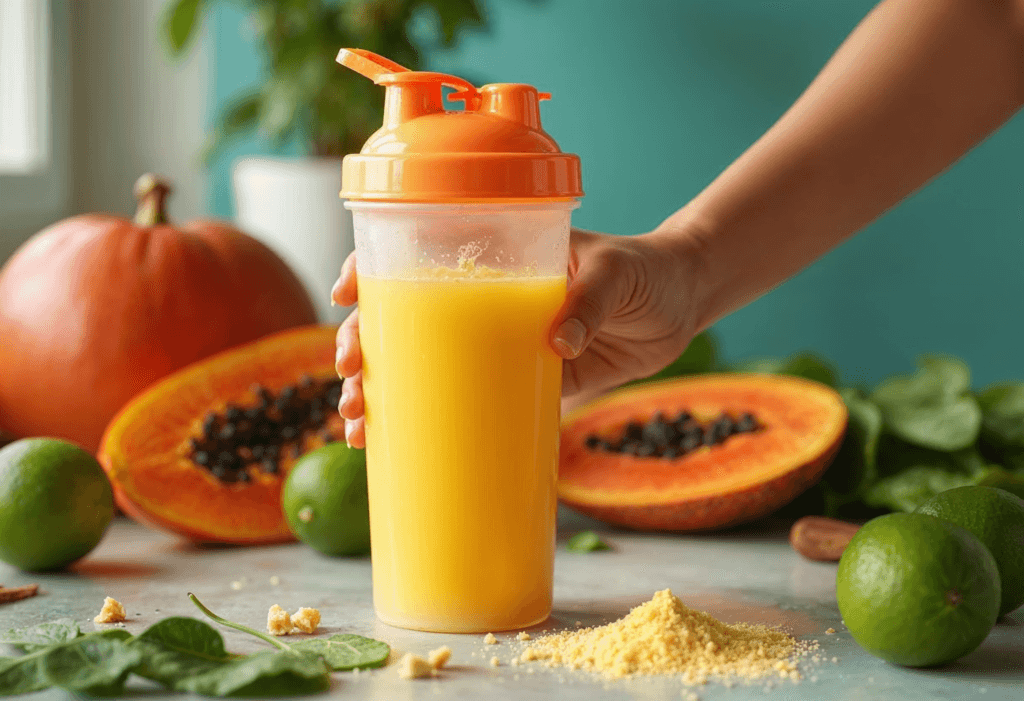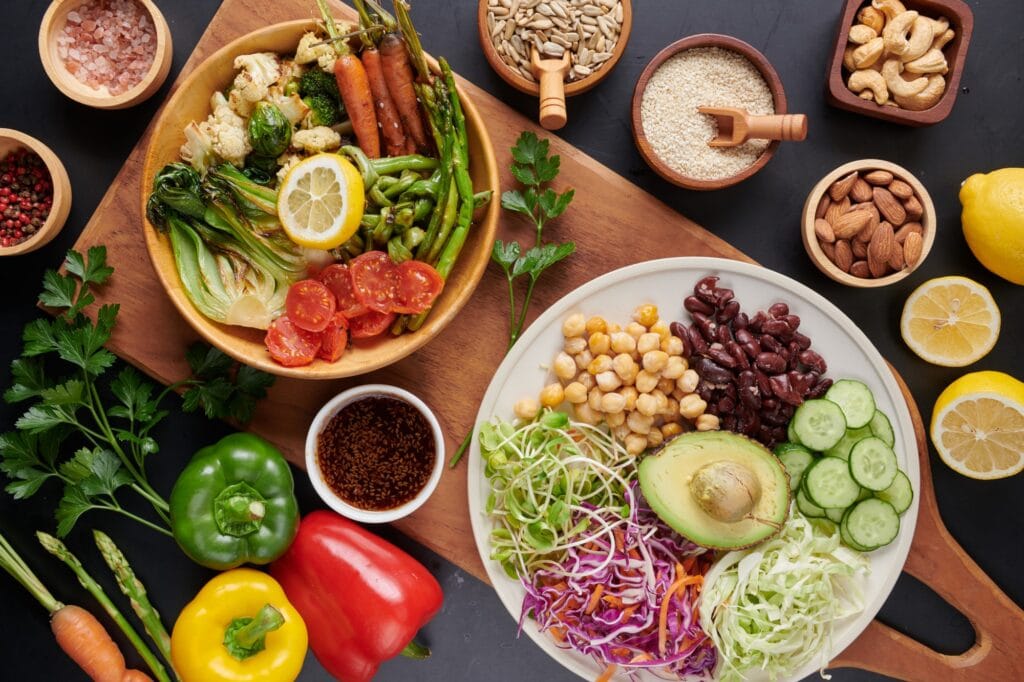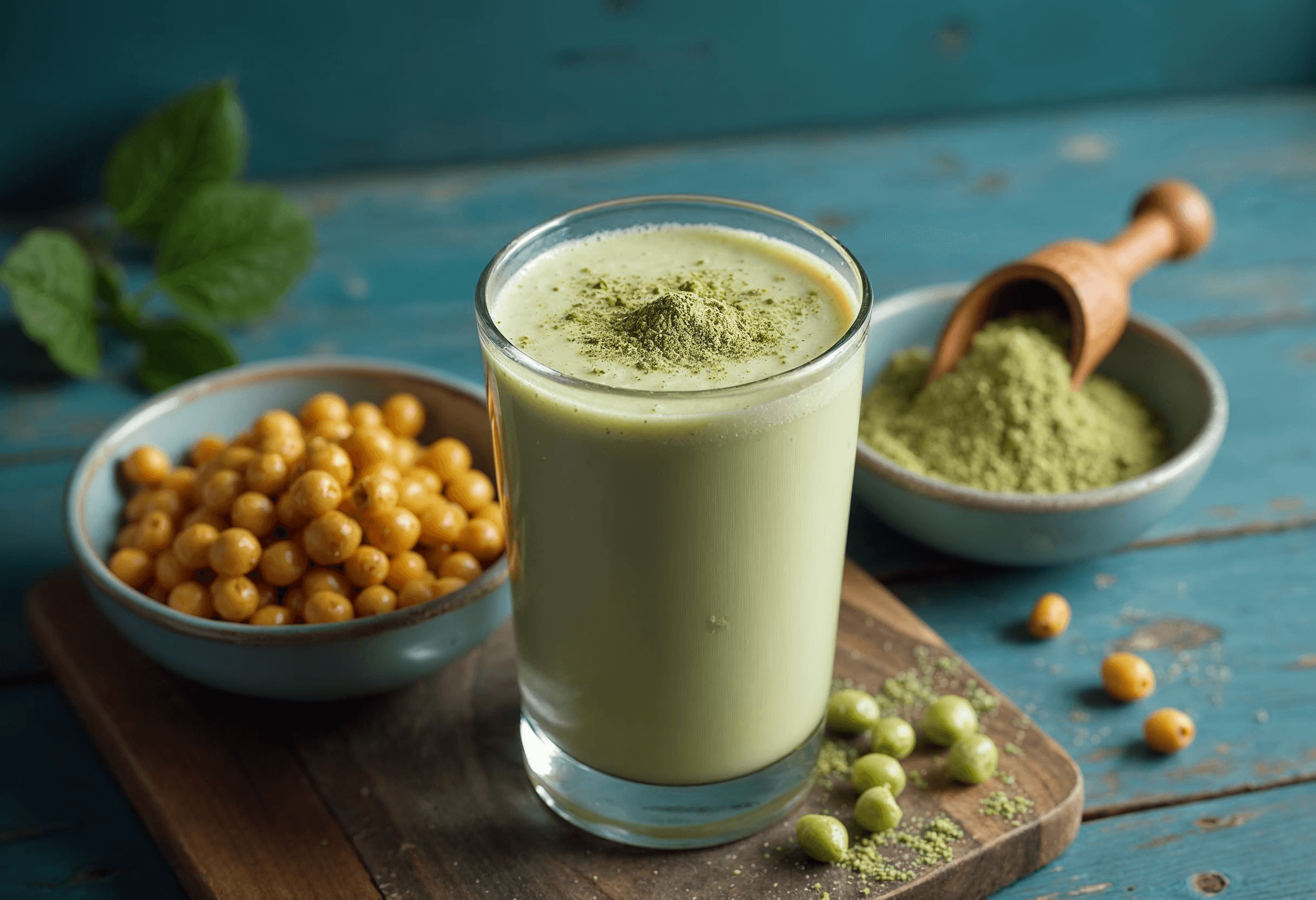Pea protein has taken the health and fitness world by storm, especially for those seeking plant-based alternatives to whey or soy. But let’s be honest—while it’s a champion in sustainability and nutrition, there’s one nagging question: does pea protein make you gassy? If you’ve ever felt bloated or noticed excessive gas after drinking a pea protein shake, you’re not alone. In this article, we’re diving deep into the science, common issues, and practical solutions to keep you feeling great while reaping the benefits of pea protein. Let’s get started! 🚀
H3: What is Pea Protein?
Let’s start with the basics. Pea protein is derived from yellow split peas, making it a fantastic vegan-friendly protein source. Unlike other protein powders, it’s hypoallergenic (no dairy or soy!), easy to digest, and packed with essential amino acids. Sounds perfect, right? Well, mostly.
Pea protein is a clean and nutrient-dense choice, but for some people, it can cause digestive discomfort—especially gas and bloating. Why? That’s what we’re here to figure out.
Common Nutritional Benefits of Pea Protein
Pea protein isn’t just about the gains. It’s also loaded with:
- Iron: Boosting energy levels and reducing fatigue.
- Essential Amino Acids: Helping repair and grow muscles.
- Low Allergens: Perfect for those with sensitivities to dairy, soy, or gluten.
But let’s not forget: even the healthiest foods can trigger digestive troubles. Understanding why is the first step toward preventing it.
Why Digestive Issues May Occur with Protein Powders
Here’s the deal: protein powders, no matter how great they are, can be tricky for your tummy. Whether it’s whey, soy, or pea protein, certain factors can cause your digestive system to rebel. These include:
- Overconsumption: Your body can only process so much protein at a time.
- Additives: Artificial sweeteners and fillers can mess with your gut.
- Fiber Content: While fiber is great for digestion, too much can cause bloating.
Pea protein is no exception. But what makes it unique when it comes to gas? Let’s unpack that next.
Understanding Gas and Bloating from Pea Protein
What Causes Gas and Bloating?
Gas and bloating aren’t just random. When you consume something your body isn’t fully prepared to digest, your gut bacteria step in to ferment it. That fermentation produces gas—think of it like your stomach throwing a party it didn’t plan for. 🎈
Pea protein, being plant-based, contains complex carbohydrates and fiber that some people find harder to break down. This can lead to discomfort.
If you’re dealing with other food sensitivities, you might also want to explore why some foods feel harsh on your stomach.
The Role of Fiber in Pea Protein
Fiber is a double-edged sword. It’s amazing for gut health but can cause issues if your system isn’t used to it. Pea protein contains soluble and insoluble fibers that can ferment in your gut, producing—you guessed it—gas.
💡 “Too much fiber is like too much of a good thing—it can backfire!”
Sensitivities to Legumes and Their Effect on Digestion
Did you know peas belong to the legume family? If you’ve ever had trouble digesting beans, lentils, or chickpeas, that might explain your reaction to pea protein. Legumes are notorious for their gas-inducing properties because they contain oligosaccharides—a type of carbohydrate that’s tough for some people to digest.
How Pea Protein Compares to Other Protein Powders in Digestion
Compared to whey and soy protein powders, pea protein is often easier to digest. However, it still contains legume-based carbohydrates, which can ferment in your gut, leading to gas. If you’re exploring plant-based diets, organizations like Plant-Based Foods Association can provide additional resources for nutrition and recipes.
“If whey protein is the popular kid, pea protein is the quiet achiever. It might not work for everyone, but when it does, it’s a game-changer.” 🌱

Common Problems Linked to Pea Protein Consumption
While pea protein has its perks, it’s not without its quirks. Let’s break down some of the most common issues people face and what might be causing them.
Excessive Gas and Discomfort
One of the top complaints about pea protein? Gas. And not the kind that powers your car. 🚗💨 Pea protein contains naturally occurring sugars called oligosaccharides, which are difficult for some people to digest. These sugars ferment in your gut, leading to bloating and—you guessed it—gas.
Bloating and Water Retention
Ever felt like a balloon after a protein shake? Bloating happens when undigested components of pea protein linger in your digestive tract. Add in water retention from sodium or other additives, and your belly can start feeling like it’s hosting a pool party. 🌊
Cramping and Gastrointestinal Distress
Cramping often sneaks in when your digestive system is working overtime to break down pea protein. If you’re prone to sensitive digestion, even small amounts can sometimes cause discomfort.
Rare Allergic Reactions to Pea Protein
While rare, some people can have an allergic reaction to pea protein. Symptoms might include nausea, stomach pain, or even hives. If you notice these signs, it’s best to stop using the product and consult with a doctor.
“A little discomfort might just be your body adjusting, but persistent issues are a sign to change things up.”
Solutions to Reduce Gas from Pea Protein
Don’t ditch pea protein just yet! If you love the benefits but hate the side effects, there are plenty of ways to reduce discomfort.
Start with Smaller Portions of Pea Protein
Ever heard the saying, “Your eyes are bigger than your stomach?” This applies here too. Start with a half-serving of pea protein and gradually increase the amount. Your digestive system will thank you.
“Easing into it is like warming up before a workout—you’ll perform better with less strain.”
Combine Pea Protein with Other Foods
Drinking pea protein on an empty stomach can be harsh. Mix it into a smoothie with fruits or vegetables to buffer its effects. Adding foods with natural digestive enzymes, like pineapple or papaya, can also help.
Look for Fermented or Hydrolyzed Pea Protein Products
Fermented or hydrolyzed pea protein powders are pre-digested, meaning they’re easier on your stomach. These products have undergone processing to reduce the compounds that cause gas.
💡 “Think of it as giving your digestive system a head start—it’s already halfway there!”
Check Ingredient Labels for Additives and Fillers
Not all protein powders are created equal. Some brands add artificial sweeteners or fillers that can exacerbate gas and bloating. Stick to clean, minimally processed products with short ingredient lists.
Stay Hydrated and Maintain Overall Gut Health
Hydration and gut-friendly foods are key to improving digestion. Pairing pea protein with fiber-rich vegetables like zucchini or healthy fats can help minimize bloating while delivering balanced nutrition.
“A happy gut equals a happy you. Treat your digestive system like the VIP guest it is!”
Alternatives to Pea Protein for Sensitive Individuals
If you’ve tried everything and pea protein still isn’t your jam, don’t worry—there are plenty of alternatives that might suit you better.
Rice Protein
Rice protein is another plant-based option that’s gentle on the stomach. It pairs well with pea protein too, as the two create a complete amino acid profile.
Hemp Protein
Hemp protein is packed with omega-3 fatty acids and fiber. It’s slightly earthy in taste but works well in smoothies for a nutritional boost.
Egg White Protein
For non-vegans, egg white protein is an excellent alternative. It’s low in fat, lactose-free, and easy to digest.
Whey Protein for Non-Vegans
If lactose isn’t an issue for you, whey protein remains a highly digestible and effective option. Just be cautious if you’re prone to dairy sensitivity.
“Finding the right protein powder is like finding the perfect pair of jeans—it might take some trial and error, but the right fit makes all the difference!” 👖

FAQs About Pea Protein and Digestion
You’re not the only one asking questions about pea protein and its effects on digestion. Let’s tackle some of the most frequently asked questions to clear the air (pun intended).
Does Everyone Get Gas from Pea Protein?
Nope! While pea protein can cause gas and bloating in some people, not everyone experiences these issues. It largely depends on your digestive system, dietary habits, and whether your gut is used to high-fiber foods. If you’re someone who already eats a lot of legumes, your body might handle pea protein like a pro.
“Think of your gut as a muscle—it adapts over time, especially with consistent habits.”
How Long Does Gas from Pea Protein Last?
Good news: it’s usually temporary. If you’re new to pea protein, gas and bloating might occur as your digestive system adjusts. Most people notice symptoms subsiding within a few days to a week. However, if it persists, it might be a sign to reassess your portion size or try an alternative protein powder.
Are There Long-Term Effects of Using Pea Protein?
In general, pea protein is considered safe and healthy for long-term use. It’s packed with nutrients, free of common allergens, and a great source of plant-based protein. However, consistently experiencing digestive discomfort could indicate an underlying sensitivity to legumes or fiber.
“Listen to your body—it’s always sending you clues about what works and what doesn’t.”
Conclusion: Balancing Nutrition and Digestive Comfort
Pea protein is an incredible option for vegans, vegetarians, and anyone looking to diversify their protein intake. However, like any food, it’s not perfect for everyone. The key is understanding your body’s unique needs and finding ways to optimize your experience.
Here’s a quick recap:
- Start Slow: Gradually introduce pea protein to your diet to help your body adjust.
- Pair Smart: Mix it with other foods to improve digestion.
- Go Clean: Look for high-quality products without unnecessary additives.
- Hydrate and Nourish Your Gut: Drink plenty of water and include probiotics in your diet.
Final Thought 💡
Pea protein is like the new kid in school—unfamiliar at first but filled with potential once you get to know it. By understanding its quirks and following these tips, you can enjoy all the benefits it offers without the uncomfortable side effects.
For more related insights, explore topics like what causes unusual digestive issues to help better understand your gut health.
So, next time someone asks, “Does pea protein make you gassy?” you’ll have all the answers—and the tools to make it work for you! 💪🌱

